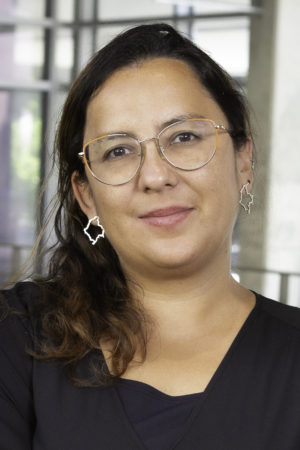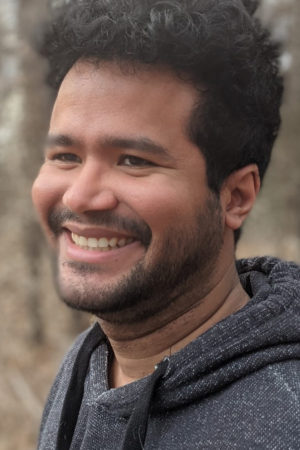ESA Announces First Editorial Fellows
October 16, 2024
For immediate release
Contact: Alison Mize, (202) 833-8773, gro.asenull@nosila
The Ecological Society of America is pleased to announce its first cohort of Editorial Fellows. Through the Society’s Editorial Fellowship Program (EFP), these early career scientists will receive leadership training in publishing, an opportunity to contribute to the growth of ESA’s journal portfolio and a chance to influence the broader publishing landscape in ecological and environmental sciences.
The EFP is a two-year funded fellowship designed to provide professional development opportunities to early career ecologists and environmental scientists, especially those from historically excluded or underrepresented groups. ESA’s journals have been responsible for publishing foundational ecology and environmental science for more than a century and are among the most widely read and cited in the world. The journals continue to expand their breadth and scope of welcomed authors and content.
“Today’s publishing landscape is changing very rapidly,” said ESA President Stephanie Hampton. “The need for diverse voices and innovative leadership in ecological science has never been greater. For that reason, we are so excited to welcome the inaugural Editorial Fellows, who we hope to empower to shape the future of our journals and the field itself.”
During their two years in the program, Fellows will receive mentoring from ESA editors-in-chief and editorial staff. They will also work on projects designed to enhance their editorial leadership skills while promoting inclusion and accessibility in ESA’s publishing program. In addition to a stipend and ESA membership benefits, the Editorial Fellows will receive publishing and meeting-related travel support.
By providing a pathway for early career scientists to gain experience in scholarly publishing, the EFP supports ESA’s broader goals of making science publishing more equitable and inclusive.
Meet the 2024 Editorial Fellows:

Andrea Paz Velez.
Andrea Paz Velez, Assistant Professor, Université de Montréal
Andrea Paz Velez uses ecological and evolutionary perspectives to understand the distribution of biodiversity on Earth. Most recently, her research applies machine learning to remote sensing data to help us improve biodiversity mapping and monitoring. Paz Velez received her Ph.D. in biology from the City University of New York, and a Master’s in biological sciences from Colombia’s Universidad de los Andes. Over the course of her career, she served as a reviewer for approximately 20 journals and served as an Associate Editor for a local journal in the Global South. Her experience as a latinX female scholar has shown her some of the biases that persist in the publishing system, and she intends to use the fellowship to develop ideas on how to make the publication process more equitable, especially for women and for researchers who speak English as a second (or third or fourth) language.

Bruno Soares.
Bruno Soares, Quantitative Environmental Scientist, University of Regina
Bruno Soares is an aquatic ecologist interested in the processes structuring ecological communities and food webs. His current research tackles large-scale patterns of phylogenetic diversity, community structure and food web functioning. Soares obtained his Ph.D. from the Federal University of Rio de Janeiro and received the ESA Excellence in Ecology Fellowship in 2022. In addition to publishing over 50 peer-reviewed papers to date, he has reviewed over 70 articles from 28 scientific journals. Soares is particularly interested in advancing open science through good practices in academic publishing and in supporting inclusiveness in scholarly publishing.
###
The Ecological Society of America, founded in 1915, is the world’s largest community of professional ecologists and a trusted source of ecological knowledge, committed to advancing the understanding of life on Earth. The 8,000 member Society publishes seven journals including a membership bulletin and broadly shares ecological information through policy, media outreach and education initiatives. Visit the ESA website at https://ecologicalsocietyofamerica.org
The Society’s Annual Meeting attracts 4,000 attendees and features the most recent advances in ecological science. The program and recorded content from the 2024 Meeting in Long Beach, California are available for viewing until summer 2025; members of the press and institutional press officers are invited to contact Public Affairs Manager Mayda Nathan gro.asenull@adyam for free access.
Follow ESA on social media:
Twitter/X – @esa_org
Instagram – @ecologicalsociety
Facebook – @esa.org